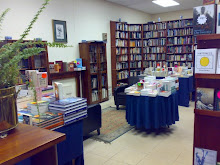
In this unique book, the text and visual images offer parallel narratives that resonate poignantly with each other. Adriaan van Zyl's series of more than 20 paintings portrays a patient's experience from waiting room to ward giving a quietly disturbing view of the soullessness of hospitals in general. Marlene van Niekerk's accompanying story is a narrative by JP Wiid, a lonely man who is diagnosed with cancer of the liver just before his retirement. The night before a scheduled operation he starts writing a "memorandum" about an experience he had during his first stay at the hospital - sharing a ward with two enigmatic men in a state of postnarcotic euphoria, he overheard their strange conversation, one which was to have a profound effect on his life. He writes how, in the ensuing four months, he becomes a regular visitor to the library, anxious to learn more about the diverse concepts he had been exposed to for the first time. Everything new which Wiid learns about the world comforts him and helps him to accept his fate. Most importantly he makes a friend for the first time - an eccentric but very helpful librarian. While writing the memorandum, Wiid makes a life-changing decision - not to have the operation the next day. He chooses instead to make the rest of his life worth living by filling it with knowledge about cultures, structures, histories, literature and music. In the process he discovers his true self - and his true vocation.
Hardcover, 136 pages ISBN-13: 978-0-7981-4730-9 published November 2006, by Human & Rousseau.
Published Price : ZAR 265.00
TALL STORIES PRICE : ZAR 165.00 (approximately Euros 13. 00)
Who is Marlene van Niekerk ?
 Marlene van Niekerk is a South African author who is best known for her award-winning novels Triomf and Agaat. Her graphic and controversial descriptions of a poor Afrikaner family in Johannesburg brought her to the forefront of a post-apartheid society, still struggling to come to terms with all the changes in South Africa.
Marlene van Niekerk is a South African author who is best known for her award-winning novels Triomf and Agaat. Her graphic and controversial descriptions of a poor Afrikaner family in Johannesburg brought her to the forefront of a post-apartheid society, still struggling to come to terms with all the changes in South Africa.She was born on 10 November 1954, on the farm Tygerhoek near Caledon in the Western Cape, South Africa. She studied Languages and Philosophy at Stellenbosch University where she obtained an MA. In 1979 she moved to Germany and from 1980 - 1985 she continued her studies of philosophy in the Netherlands where she obtained a Doctorate. She is now professor at the Department of Afrikaans and Dutch, at the University of Stellenbosch.
Triomf (translated by Leon de Kock) was a New York Times Notable Book, 2004, won the CNA Literary Award, and M-Net Prize in South Africa and the prestigious Noma Award, the first Afrikaans novel to do so. The film adaptation, directed by Michael Raeburn, won the Best South African Film Award at the Durban International Film Festival, 2008. The equally well-awarded Agaat ( Sunday Times Prize Literary Prize 2007 and Hertzog Prize 2007) was translated as The Way of the Women by Michiel Heyns, who won the Sol Plaatje Award for his translation.
Sources :
http://www.youtube.com/user/BOOKVideoSA

